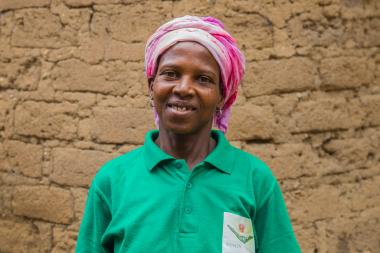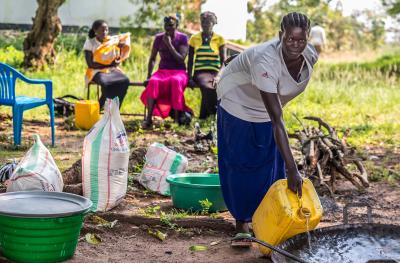In early March, the World Health Organization (WHO) officially classified the COVID-19 outbreak, more commonly known as the coronavirus, as a global pandemic. With the number of confirmed cases, deaths, and countries affected growing every day, the effects of this disease have been devastatingly widespread. Political administrations, business leaders, and public health experts have all taken extra measures to reduce the calamity, but what about the people around the world who are frequently left out of the conversation?
Unsurprisingly, an abundance of research and statistical observance tells us that the most marginalized populations stand to suffer the most when infectious outbreaks, like coronavirus, grow, regardless of where the disease originates. This trend has been seen countless times before, including in past epidemics of Ebola, SARS, and the swine flu.
Women as Caretakers
Especially in communities where women have few economic opportunities outside of the home or have limited political privileges, social and cultural norms require women to be the caretaker of the family.
As wives, mothers, and daughters are called upon to be on the frontlines of treating those who are already sick, they put themselves at a greater risk of contracting the disease themselves, endangering their own health and the health of others around them. Among many of the most recent and widespread global pandemics, rates of infection and mortality among women have typically been higher, which can be attested to this standard, according to Dr. Julie L. Gerberding, former director of the United States Center for Disease Control and Prevention.
When women are more vulnerable to dangerous diseases, the effects are devastating and extend well beyond them. Compounded by poverty and food insecurity, women living in marginalized populations can no longer provide for their families when they fall ill; they lose the opportunity to earn additional income needed to obtain necessary supplies for their whole family, meaning the effects of disease impoverish entire communities, not just the individuals who fall ill.
Reliance on Livestock
Around the world, the most marginalized populations heavily rely on livestock as a source of food, economic production, and transportation; this applies to many of the communities we work with. Over half of all infectious human diseases start from contact with ill livestock, according to the World Health Organization.
This means that low-income, isolated communities most reliant on livestock stand to be affected, especially with less agricultural resources to prevent disease in their livestock. It becomes a vicious cycle of poverty: When people can’t cure their livestock, their livelihoods and food security take a hit.
Women are particularly at risk. The Food and Agriculture Organization of the United Nations estimates that two-thirds of the estimated 600 million poor livestock keepers around the world are women.
In many of Afghanistan’s rural villages, for example, women who are not permitted to leave the household are responsible for managing livestock-related activities. This often puts them in direct contact with sick animals or in unsanitary conditions for their livestock and themselves — increasing their likelihood of contracting infectious diseases and spreading them to others.
Differential Access to Health Care
The women we serve are most isolated from care, both because they often live in rural, remote areas where adequate care is not available, and because they do not have the income to seek out and afford better medical conditions. This isolation creates a dangerous positive feedback loop.
As noted by the World Health Organization, “Major epidemics emerge and chronic conditions cluster and persist wherever poverty is widespread. Lack of food, shelter, security and social protection make people more vulnerable to infections, while affected populations are often unable to obtain even the most basic means of prevention and care. Poverty creates conditions that favor the spread of infectious diseases and prevents affected populations from obtaining adequate access to prevention and care.” Women existing at the intersection of conflict, poverty, and gender-based violence are placed most at-risk.
A core part of Women for Women International’s Signature Program is developing health and wellbeing among our program participants. Program participants are provided with simple tools that can influence decision-making about their own health and the health of their families.
Our curriculum teaches women about nutrition, hygiene and sanitation, first aid, reproductive and sexual health, and basic overall health education. We partner with local care providers to supplement this information and ensure we are addressing the health concerns that are most relevant to each community, creating a ripple effect as this education diffuses to relatives and neighbors.

A participant of the program in Nigeria, Veronica, said, “The best thing I learned in the Women for Women International program was hygiene and how to prepare nutritious food.
"My children now get sick less because I learned so much in the program about how to take care of [my] family’s wellbeing.”
As the coronavirus pandemic shows few signs of slowing, we ask the international community: how will you stand in solidarity and protect those who stand to fall the hardest?

